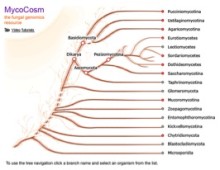Elucidating bacteria’s roles in ant fungal gardens
Leafcutter ants cultivate fungal gardens that serve as their primary food source. Working toward the goal of harnessing novel enzymes for breaking down plant biomass to produce cellulosic biofuels, Great Lakes Bioenergy Research Center (GLBRC) researchers have been studying the process by which the fungi break down the plant leaves harvested by the ants and… [Read More]
